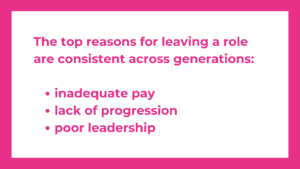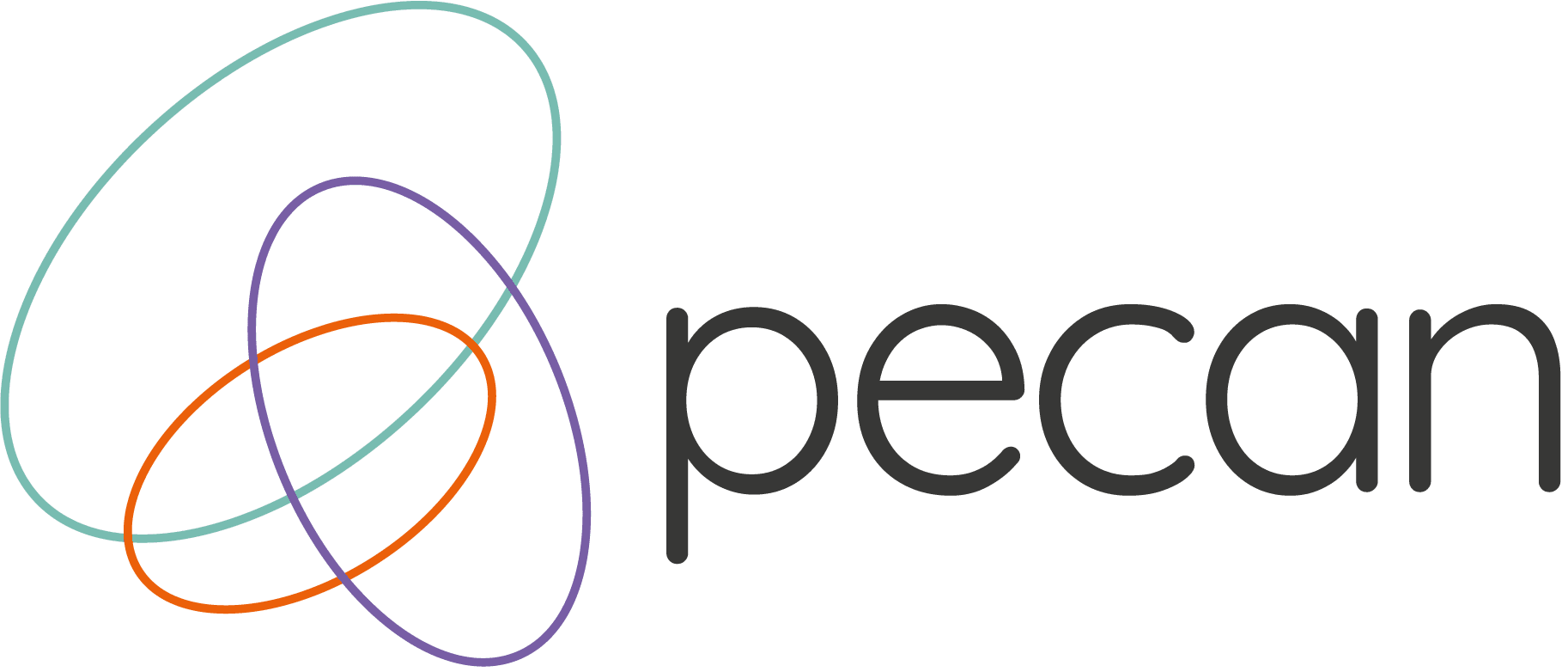
The Generation Game: truths, myths and how to win
Much has been written about different generations’ expectations about their work and careers. At the time of writing, Google brings up 178m entries for a search into “generational differences in the workplace”. But are these assertions really true? And if there are (or aren’t) age-based differences in expectations, what does this mean for how companies build and iterate their organisational cultures?
Changing expectations?
So, what are the most commonly stated differences between the generations?
- Baby Boomers (usually defined as being born 1946-1964): Tend to place considerable emphasis on the importance of their career, often above work-life balance. They are likely to value long-term stability and loyalty, often staying with a single company for an extended period. They’re inclined to value experience, knowledge, and seniority.
- Generation X (born 1965-1980): Tend to be resourceful, logical and good problem-solvers. They’re more relaxed than their Baby Boomer predecessors, valuing flexibility and work-life balance, as well as skill development and autonomy.
- Millennials (born 1981-1996): Are likely to want to find their work meaningful and are prepared to switch jobs regularly to do so. They’re curious and independent, and more prepared to question authority than earlier generations.
- Gen Z (born 1997-2012): Value authenticity, truth, and connectivity, and expect these things from their managers and organisations. Sometimes labelled ‘entitled’, they’re demanding more from their workplaces in terms of pay, flexibility and improved environmental and social responsibility.
Clearly these are sweeping generalisations by their very nature. The reality is much more complex, and there will always be individuals that buck the trend in myriad ways. But what does the data say: are these genuine differences, or workplace myths?
A recent study by McKinsey found that inter-generational differences are much less significant than we might think. It argues that similarities between the generations outweigh the differences, particularly when it comes to the things that matter most at work. For example, it found that, for all generations, the primary drivers for accepting a new role are (in order of importance) pay, career development, meaningful work, and workplace flexibility. Similarly, the top reasons for leaving a role are also consistent across generations: inadequate pay, lack of progression, and poor leadership.

There are some notable exceptions. For example, the McKinsey study found that Gen Z are more likely to be retained by non-pay factors (e.g. flexibility, progression, meaningful work, a supportive culture); whereas for earlier generations, pay is usually more important driver of retention. And there are nuances within the data, of course. Flexibility is important for all age groups, but for different reasons: for Millennials it may be for family commitments or caregiving; for Gen Z it may be to enable travel or social activities.
Research reported by Forbes also argues that the differences are over-stated and suggests that the differences that do exist are less about birth-year, and more about life-stage or maturity; as we age, our priorities naturally shift. Intersectionality is also important. Generalisations about age mask the various similarities and differences in work values and preferences between diverse social-economic groups, racial and ethnic groups, and gender identities.
What does this mean for organisations?
Here at Pecan, we argue that it’s time to let go of the generational stereotypes. Instead, organisations should:
- Prioritise getting right the things that matter across the board: a supportive culture, career progression, flexibility, reward and recognition, great leadership; and
- Listen and respond to the more nuanced needs and preferences of individual team-members, regardless of age.
This last point might feel overwhelming, but it’s possible to do as part of an active culture programme. It might look like:
- Creating spaces and forums for people to get together and talk about their experiences of work and the organisation. These forums could be Employee Resource Groups based around diversity characteristics, life stages, culture champion groups, or just informal groups to connect people.
- Training and supporting managers to have conversations with their people, to understand and explore their individual perspectives: what motivates and energises them, what drains them, what they get from their experience of work, what they’d like to get more of in future.
- Reviewing people survey questions to check it’s providing the information that’s most needed and analysing the data through multiple different lenses (including, but not limited to, age group).
- Implementing mentoring and reverse mentoring programmes, to link up different communities within the organisation.
- Providing choice where possible, for example in terms of benefits, or career pathways.
We’re experts in creating cultures where people of all ages love to work. For support or to kick around some ideas, get in touch. We’d love to hear from you.
Photo by John Moeses Bauan on Unsplash

